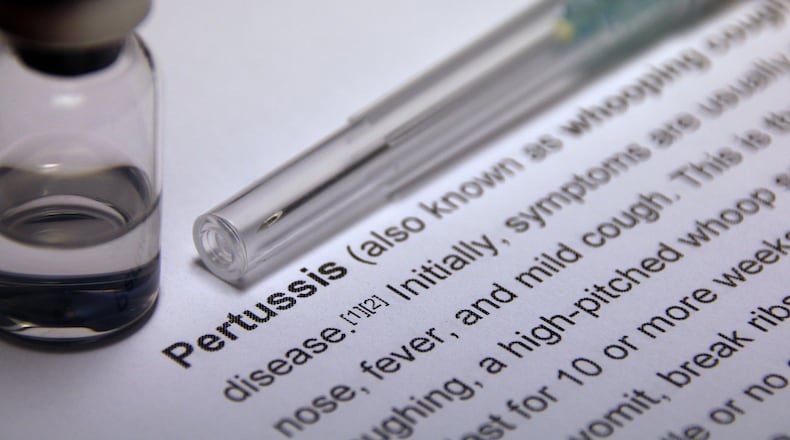Whooping cough is highly contagious and is usually spread by coughing or sneezing while in close contact with others, who then breathe in the pertussis bacteria. It can cause serious illness in people of all ages but is most dangerous for babies. Montgomery County had dozens of whooping cough cases last month, also much higher than its 2022 full-year total.
Symptoms of whooping cough usually develop within 5 to 10 days after you come into contact with the bacteria that cause it, but sometimes symptoms do not develop for as long as three weeks, according to health district officials.
** Stage 1, or early symptoms can last 1-2 weeks and include runny or stuffed-up nose, low-grade fever (less than 100.4 degrees), mild occasional cough (babies do not do this), apnea (life-threatening pauses in breathing) and cyanosis (turning blue or purple) in babies and young children. Many times, in the early stages of whooping cough, it is very easy to think it is just a common cold, health district officials said. Early testing is important since the antibiotics used to treat the illness are most effective in the first stage of pertussis. Antibiotics are not effective once the “whooping” starts.
** Stage 2 symptoms can last anywhere from 1-10 weeks. During this time, someone affected by whooping cough will develop rapid, violent, and uncontrolled coughing fits, increasing in frequency and intensity.
** Stage 3 is recovery, which can be slow, as the cough becomes milder and less common as someone gets better, but it can return if someone develops another respiratory infection.
Whooping cough can cause serious and sometimes life-threatening complications in babies, according to the health district. This is especially true within the first 6 months of life. It is important to know that some babies with whooping cough don’t cough at all. Instead, it causes them to stop breathing and turn blue. If their mothers are vaccinated in the third trimester (27-36 weeks), newborns are offered some protection.
The Warren County Health District said the best way to prevent whooping cough is to get vaccinated. Two vaccines in the United States help prevent whooping cough: DTaP and Tdap, which also provide protection against tetanus and diphtheria. WCHD offers both of these vaccinations.
People who have not received a Tdap vaccination in the last 10 years, or are unsure, and want to get scheduled, can call 513-695-1229.
People who have been exposed to the bacteria that causes whooping cough, should talk to their doctor about whether they need preventive antibiotics, according to WCHD. This is especially important if the person is in contact with a baby or pregnant woman.
About the Author

